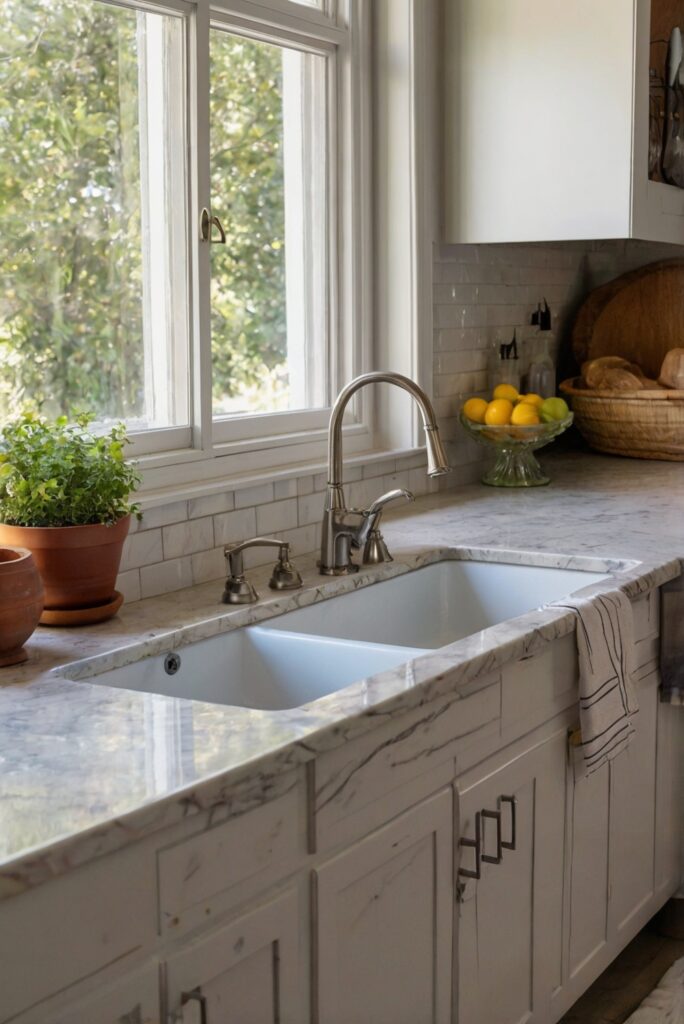Discover the key considerations for choosing the ideal material for your kitchen sink. Learn how to achieve both style and functionality in your daily interior design routine.
How to Select the Best Material for Your Kitchen Sink?
Choosing the right material for your kitchen sink is crucial for both functionality and aesthetics. When selecting the best material for your kitchen sink, consider factors like durability, maintenance, and style. Stainless steel sinks are a popular choice due to their affordability, durability, and easy maintenance. Granite composite sinks offer a modern look and are resistant to scratches and stains. Porcelain sinks are elegant but can chip easily. Cast iron sinks are durable but require regular maintenance to prevent rusting. Each material has its own benefits and drawbacks, so assess your needs and preferences before making a decision.
– Focused on keywords: home decorating, home interior, home interior design, home decor interior design, space planning, interior design space planning, decorating interiors, interior bedroom design, designers kitchen, kitchen designs, living room interior, designer wall paint, primer paint for walls, color matching painting, paint color match, home paint colors
When choosing the best material for your kitchen sink, there are several important factors to consider:
1. Durability:
One of the most important factors to consider when selecting a kitchen sink material is durability. You want a sink that can withstand daily use and resist scratches, stains, and dents. Stainless steel sinks are a popular choice for their durability and resistance to corrosion. They are also easy to clean and maintain.
2. Style and Design:
The style and design of your kitchen sink can greatly impact the overall look of your kitchen. Consider the aesthetic appeal of the sink material and how it will complement the rest of your kitchen decor. Materials like granite, fireclay, and quartz offer a variety of colors and textures to choose from, allowing you to customize your sink to match your kitchen’s style.
3. Maintenance:
Another important factor to consider is the maintenance requirements of the sink material. Some materials, such as stainless steel and granite, are easy to clean and maintain, while others may require more frequent cleaning and special care. Consider how much time and effort you are willing to invest in maintaining your kitchen sink when choosing the material.
4. Cost:
The cost of the sink material is also an important consideration. Some materials, like stainless steel, are more affordable, while others, like copper or granite, can be more expensive. Consider your budget and weigh the cost of the material against its durability and aesthetic appeal to make the best choice for your kitchen sink.
5. Environmental Impact:
When selecting a material for your kitchen sink, consider the environmental impact of the material. Some materials, like stainless steel and recycled copper, are more eco-friendly options than others. Choose a material that is sustainable and environmentally responsible to reduce your carbon footprint.
In conclusion, selecting the best material for your kitchen sink requires careful consideration of factors such as durability, style, maintenance, cost, and environmental impact. By weighing these factors and choosing a material that meets your needs and preferences, you can ensure that your kitchen sink not only looks great but also performs well for years to come.
1. Consider Your Usage:
2. Durability and Maintenance:
3. Style and Aesthetics:
When selecting the best material for your kitchen sink, it is crucial to consider your usage. If you have a busy kitchen and require a sink that can withstand heavy use, materials like stainless steel or cast iron are excellent choices. Durability and maintenance are key factors to keep in mind. Stainless steel sinks are durable and easy to clean, while granite composite sinks are resistant to scratches and stains. Additionally, style and aesthetics play a significant role in your decision. Choose a sink material that complements your kitchen’s design and adds to its overall appeal.
4. Budget and Affordability:
5. Environmental Impact:
When determining the best material for your kitchen sink, it is essential to consider your budget and affordability. Some materials, like copper or fireclay, may be more expensive upfront but offer long-term benefits. On the other hand, stainless steel sinks are cost-effective and durable. Additionally, evaluate the environmental impact of the materials. Opt for eco-friendly options like recycled stainless steel or composite materials that minimize waste and energy consumption. By carefully considering these factors, you can select the best material for your kitchen sink that meets your needs and preferences.

